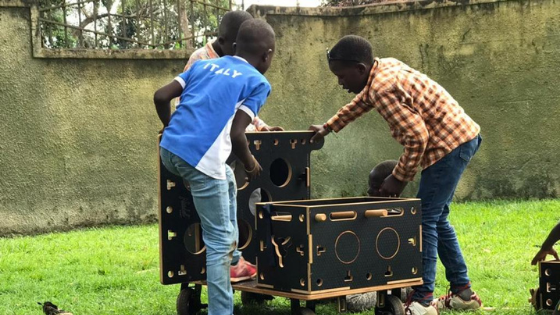Play is a natural state of being for a child, it is what a child instinctively does to process their experiences and make sense of the world. At a very early age, it is through play that children can engage and interact with the world around them. Play allows children to develop their creativity, imagination, dexterity, as well as physical, cognitive, and emotional strength.
Play is important to healthy brain development and social learning. If play is beneficial to children’s health and wellbeing, then it follows that depriving children of play would have harmful effects. Therefore, when discussing the importance of play, we must look at what happens when children are deprived of their right to play…
Research has concluded that when children are chronically play deprived for whatever reason, they suffer symptoms ranging from depression and withdrawal to a gradual loss of all electrical activity in the brain. The term ‘play malnourishment’ has been coined after research has repeatedly concluded that a distinct lack of play can have detrimental effects on a child’s development and wellbeing. Long-term impacts of play deprivation during early child development can include isolation, reduced self-control, poor resilience, aggression, and repressed emotions and social skills. The ages of 0–7 are seen developmentally as the “sensitive period” for neurological growth and play deprivation during this period is considered likely to be particularly damaging.
For many children, their right to play and to reap the developmental advantages associated with play is challenged. By providing children with access to safe play, we can enable the child to tap into this natural state, and activate hormones associated with well-being such as endorphins and dopamine. Play provides a wealth of therapeutic opportunities, all under the child’s control, to process anger, relieve stress, relax, bond with others, express themselves, increase their loss of control, overcome challenges and model positive behaviours.
Recent trends in the UK have included rising social isolation, fostering suspicion and fear of public space, and loss of play opportunities. If we want to address children’s right to play, we must focus not only on supporting children’s participation or engagement through play, but also on the needs of adults and the idea of multi-generational community play. Through the creation of community-based play opportunities, locals are welcomed across boundaries such as age, ethnicity, and economic status.
When play is not only valued, but also showcased publicly, children can be empowered to create their own forms of engagement and participation on their own terms. The outcomes associated with play are not only essential for children’s healthy development and learning over time, but for their participation in society and development of social capital. Through providing opportunities for community-based play, we can tackle the rising cases of play deprivation whilst uniting communities and promoting the importance of play.
Find out more about what we do in community settings and how you can support our work.













